The parents of a toddler who was diagnosed with a rare eye cancer at the age of one have said they hope she will have “as close to a normal life as she can when she’s older”.
Ava Grace, now three years old, was diagnosed with retinoblastoma – cancer of the retina – shortly after her first birthday in 2023.
The rare cancer affects between 40 and 50 people each year, usually children under five, and has cost Ava her right eye.
Her parents, Vicki Cooper-Bird, 37, and Ian Bird, 40, said Ava had been a happy and healthy little girl, but everything changed when she was 14 months old.
“Ava’s diagnosis was completely blindsiding,” Vicki, who lives in Port Talbot, South Wales, said.
“We had no idea, nothing.”
After contracting hand, foot and mouth disease – a common viral illness that predominantly affects children – Vicki and Ian began to notice changes in Ava’s eyes.
Over a matter of hours, her iris darkened from a light blue to a dark blue, and her pupil stopped dilating properly, prompting a trip to the GP. Unable to see the back of Ava’s eye, the GP referred the family to the paediatric assessment unit, who admitted her for three days for monitoring and tests.
An ultrasound scan found that the pressure in Ava’s eye was more than double what it should have been, and the family’s world came crashing down when the senior paediatrician for ophthalmology told them he suspected retinoblastoma – a rare eye cancer.
Ava had full retinal detachment, meaning the light-sensitive retinal tissue had separated entirely from the back of the eyeball, and was blind in the affected eye, something Vicki and Ian hadn’t been aware of until that point.
Ava was transferred to a specialist clinic in Birmingham for an eye exam under general anaesthetic, where the parents’ worst fears were confirmed: she had a 22mm grade E tumour – the highest and most serious grade – and she was diagnosed with retinoblastoma on November 2, 2023.
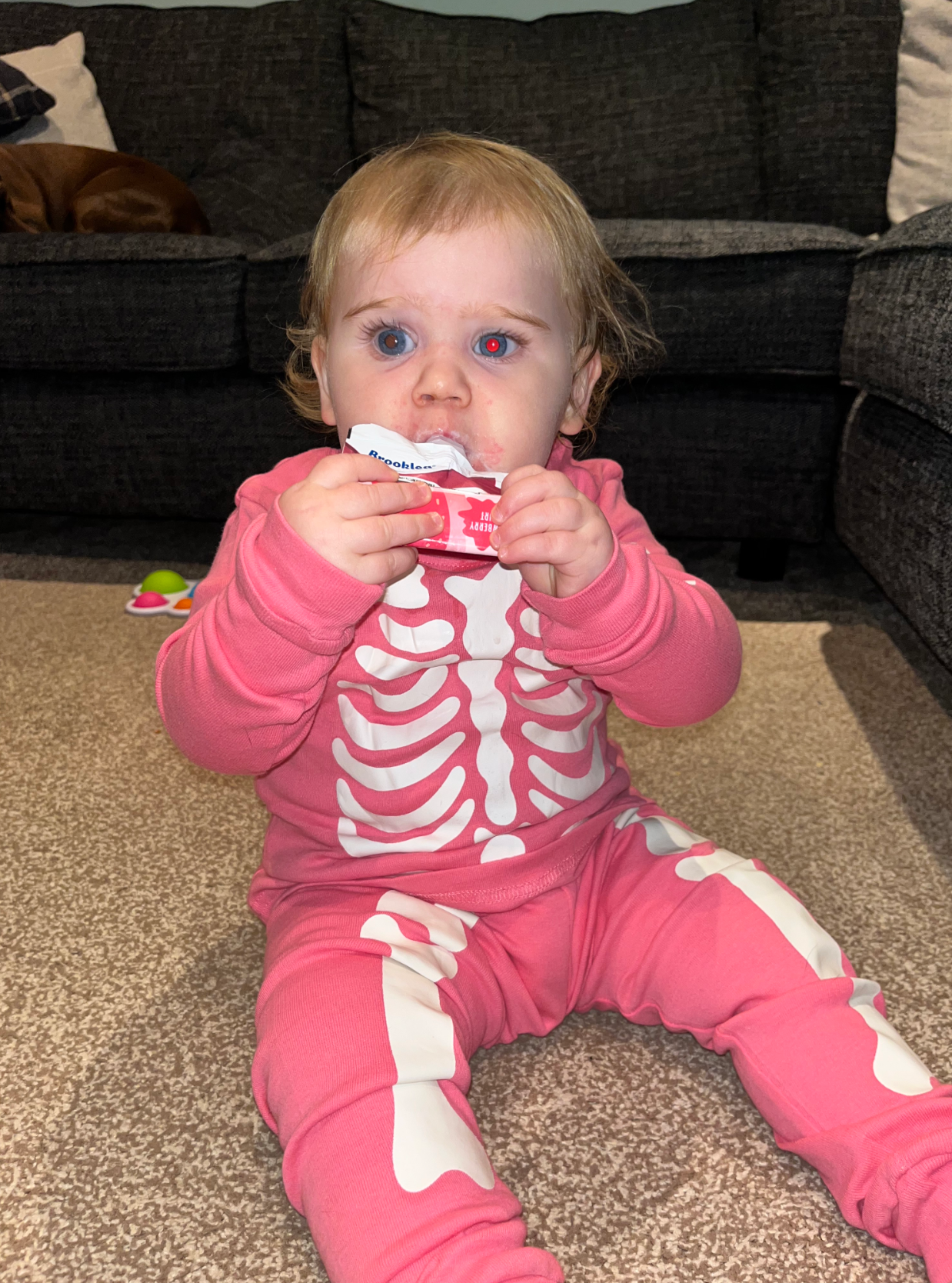
“It was really aggressive, and there wasn’t anything they could do to save the eye,” Vicki said, adding that surgery was soon scheduled to remove the tumour and Ava’s eye.
“We just sat in the car, and we just cried. At that particular time, we didn’t know anything about retinoblastoma. We didn’t know how long we had left with her… We just felt raw and unsure of what the future held.”
“The C word, when you hear that for yourself, is almost devastating, but when you hear it for your one-year-old, that’s really another level, which no one would ever even want to even consider…” Ian added.
“It was very numbing, but we just had to focus on the next step.”
Thankfully, the cancer had not spread along the optic nerve, so there was no need for chemotherapy before surgery. On November 14, just three days after Vicki and Ian’s wedding day, Ava was taken into surgery to remove her eye.
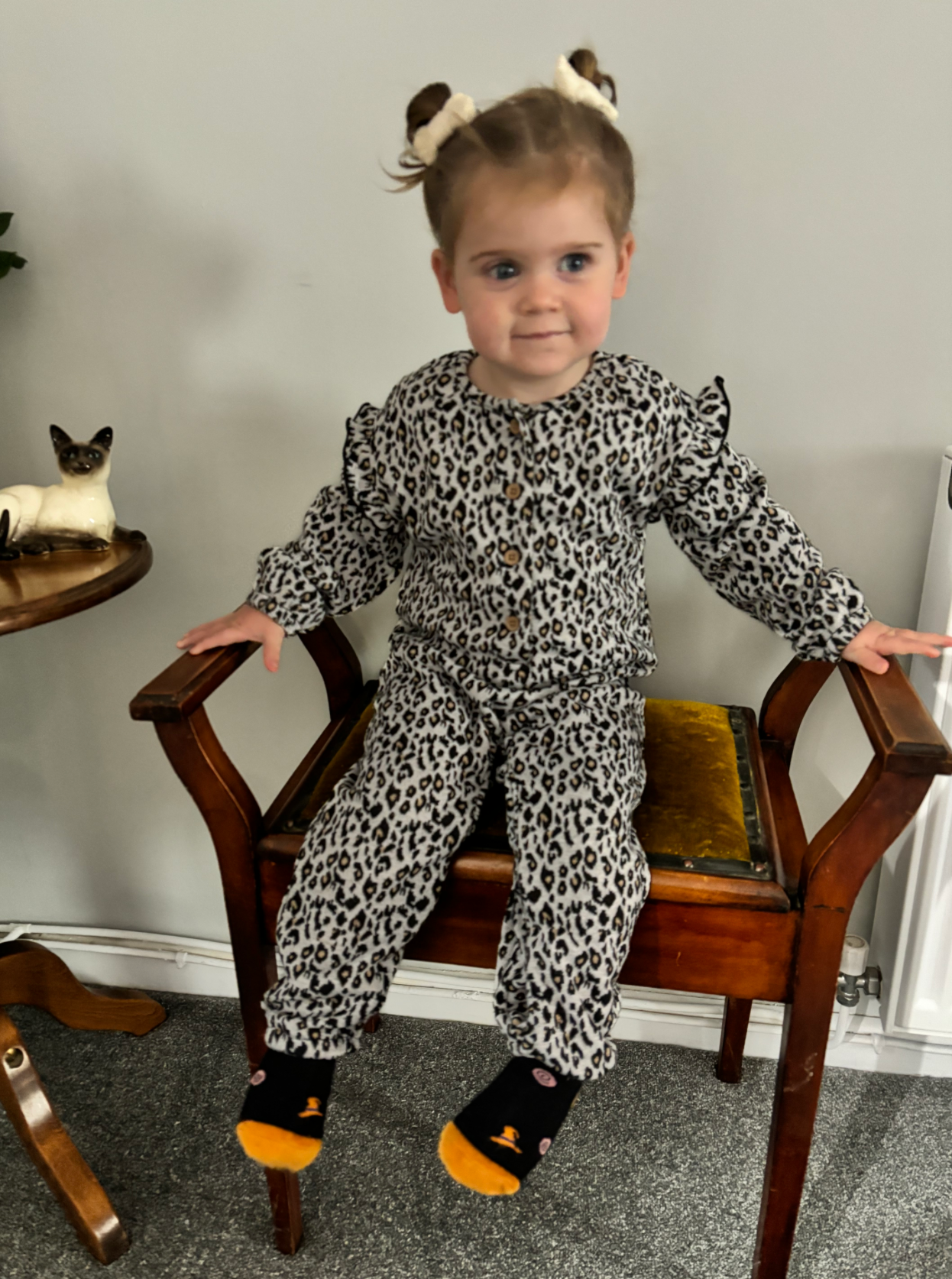
Ava faced complications following the surgery, including the trial-and-error process of finding a prosthetic eye that suited her.
She struggled to adjust, often pulling out the prosthetic, and the family had to travel back to the hospital two to three times per week to get it reinserted. In the first year alone, Ava tried six different prosthetic eyes.
She has dealt with infections, healing struggles, and more physical difficulties, but is also contending with insomnia and psychological trauma from her experience.
Ava hasn’t slept through the night since September 2024, Vicki said, often waking between four and six times per night – but she is now attending bi-weekly play therapy sessions and has been prescribed melatonin to help her sleep.
Vicki and Ian also have two other children – a son aged 14, and a daughter aged 12 – who have faced a lot of disruption to family life over the last two years.
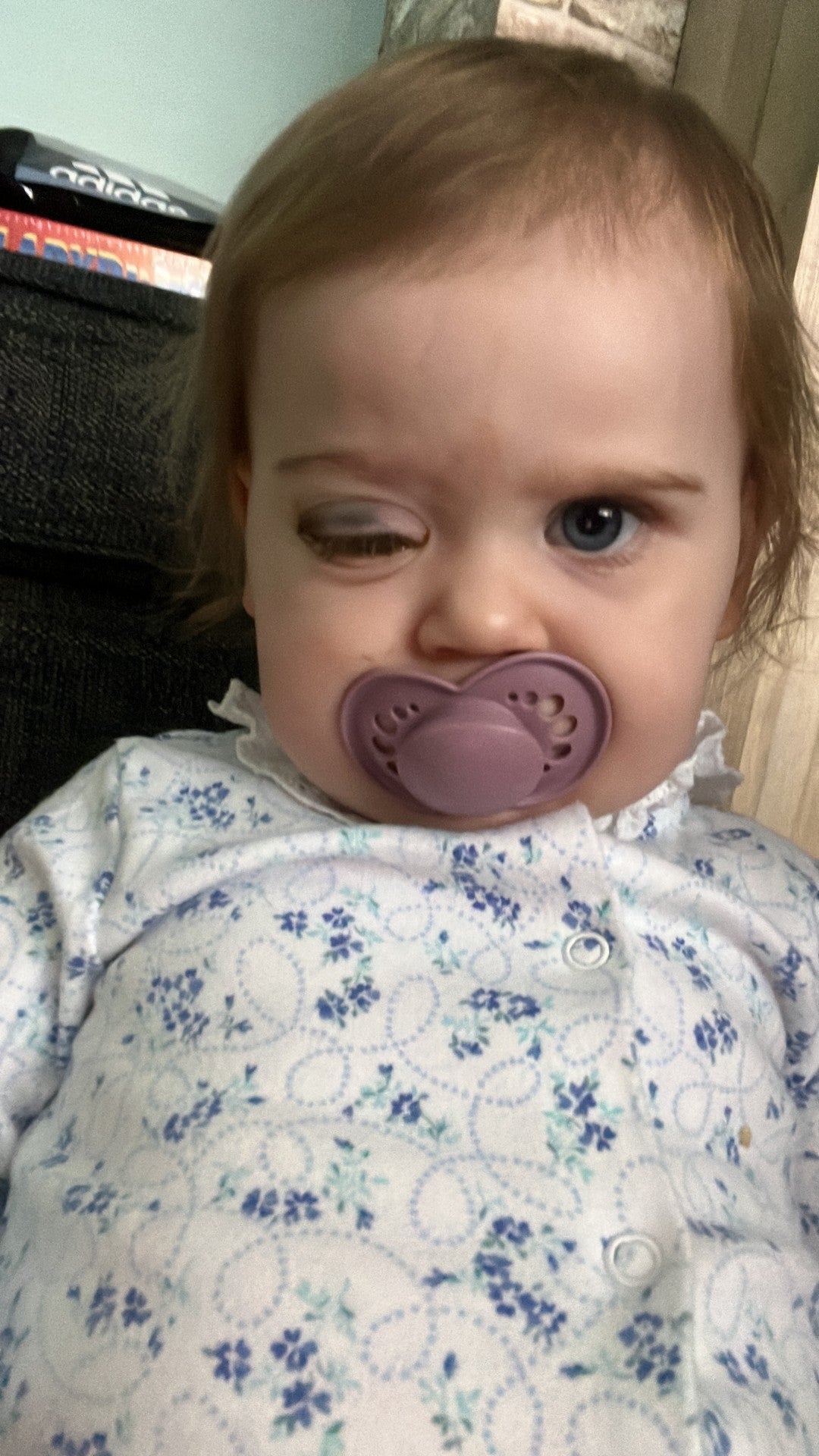
Ava attends a specialist clinic at Waterfall House at the Birmingham Women’s and Children’s Hospital – one of only two sites in the UK which offer treatment for retinoblastoma – meaning Vicki and Ian must travel 200 miles each way for her appointments, often needing to spend the night in Birmingham, too.
Ava has had 64 appointments in the past two years.
“They fully understand that Ava is taking the majority of the attention, not the love, but certainly the attention,” Ian said of the couple’s older children.
“It is difficult for them. They experience things and witness things that shouldn’t really be normal for a child, but we just try to get through it, and we just try to spread as much positive news as we can with them and try to share positive experiences.”
Thankfully, Ava is now cancer-free – but she still faces a “really big medical journey”.
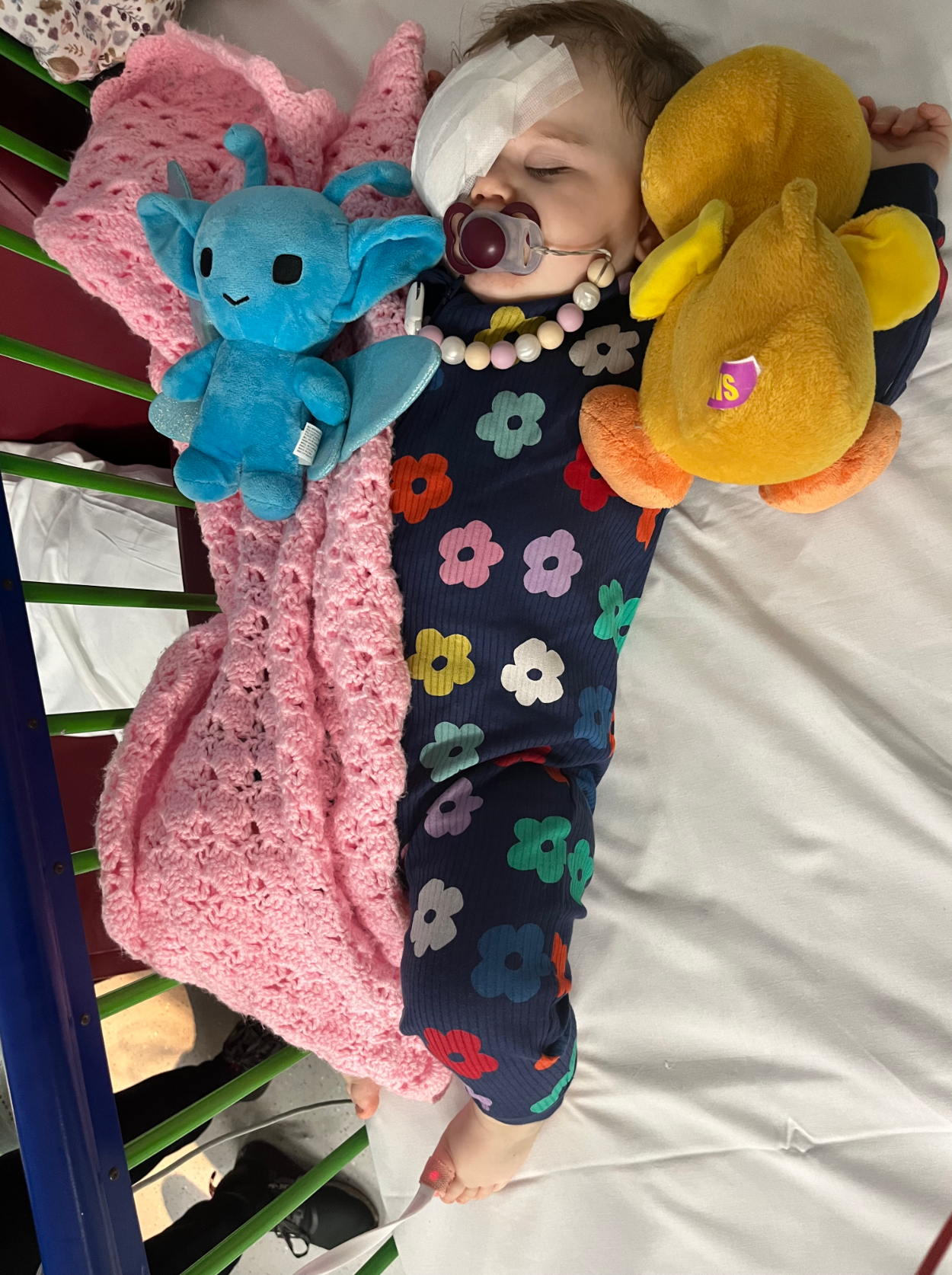
“We just want to move on with our lives as a family, and not look at when the next hospital appointment is, literally in the coming week,” Ian said.
“I know she will have as close to a normal life as she can when she’s older, but we’re not there yet, unfortunately.”
For children like Ava, the smallest comforts during scary and intense hospital appointments can make the biggest difference. When she had surgery to remove her eye, a nurse gifted her a cuddly penguin called Pip, who had a removable eye – just like Ava.
Now, Ian and Vicki are supporters of Children with Cancer UK’s Christmas Appeal, which is helping children who are dealing with cancer with a cuddly friend, Corry the Bear.
Corry has been a friend to Ava during her recent appointments and surgeries. She plays with him at home, takes him to hospital, and he’s there for her in post-surgery recovery when her parents can’t be – he even wore her identity band for her, as her phobia of hospitals makes it difficult for her to wear it herself.
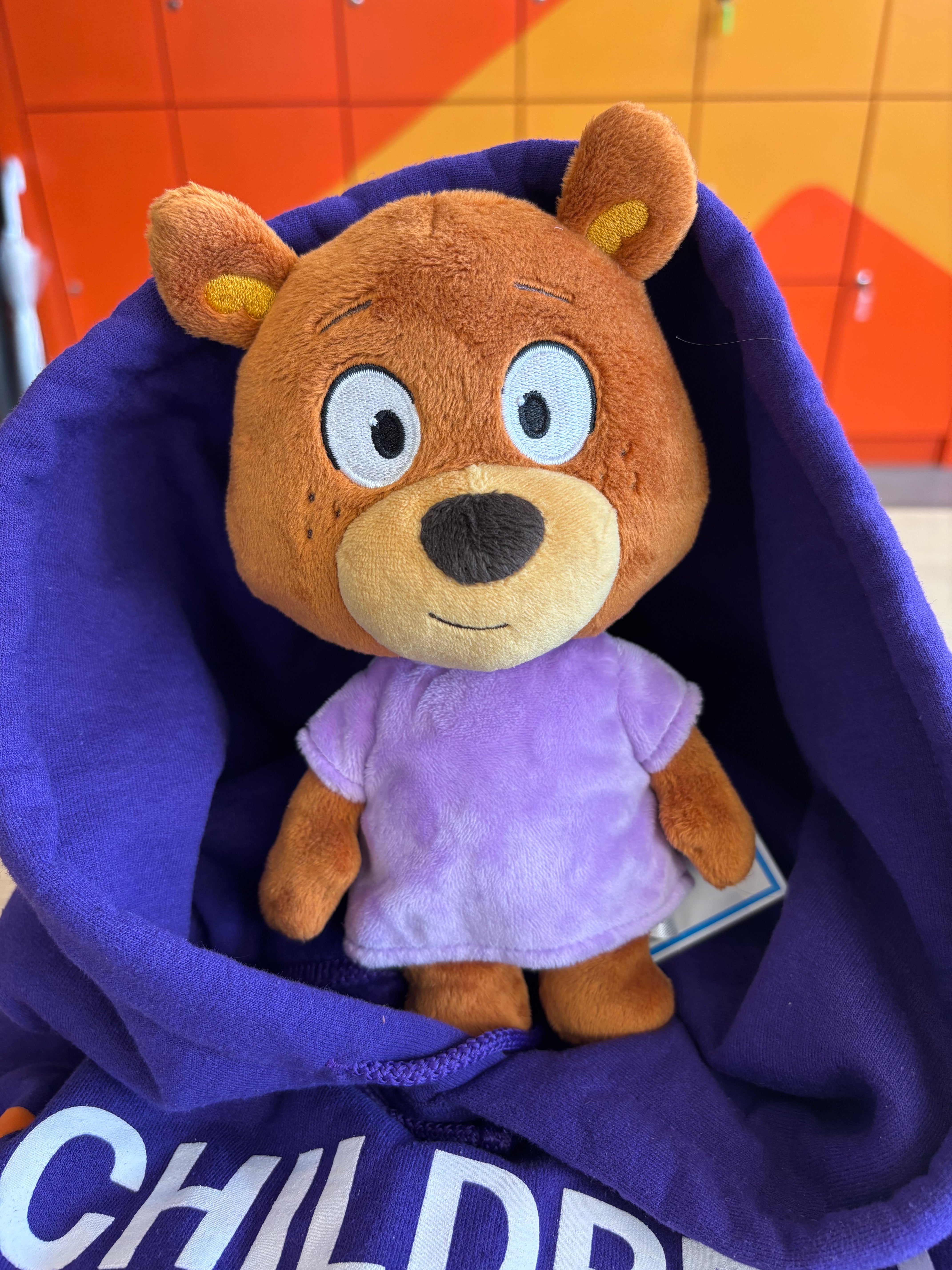
“It represents comfort, really,” Ian said.
“It is a physical comfort, just something to be with Ava, and she can associate it with a bit of normality as well. Because it’s at home, and it’s something she can take with her to hospital too.”
“It’s just a little teddy, but to her, it’s a massive deal,” Vicki added.
“It’s her safe place, essentially, when she’s in this scary environment.”
Main symptoms of retinoblastoma
NHS
The main symptom is a white glow or white reflection in the centre of the eye (pupil).
Other symptoms of retinoblastoma can include:
- the eyes pointing in a different direction (squint)
- the coloured part of the eye (iris) changing colour
- swelling around the eye
- uncontrolled eye movements
- vision problems
- pain in 1 or both eyes
As for Ava, there’s a long road ahead – but she and her family look forward to a day when life is closer to normal.
This Christmas, Vicki urges parents to watch out for the signs of retinoblastoma – signs which can be most prominently spotted through flash photography, which many parents will be using to capture festive memories of their families.
For example, the main symptom is a white pupil or glow, which can be seen in photos where the other eye shows a red reflection. Other symptoms include a lazy eye, a squint, loss of vision and changes in the colour of the iris.
To support Children with Cancer UK’s campaign and purchase a teddy that helps children like Ava, Corry the Bear is available to purchase at childrenwithcancershop.org.uk/en/products/gifts.


